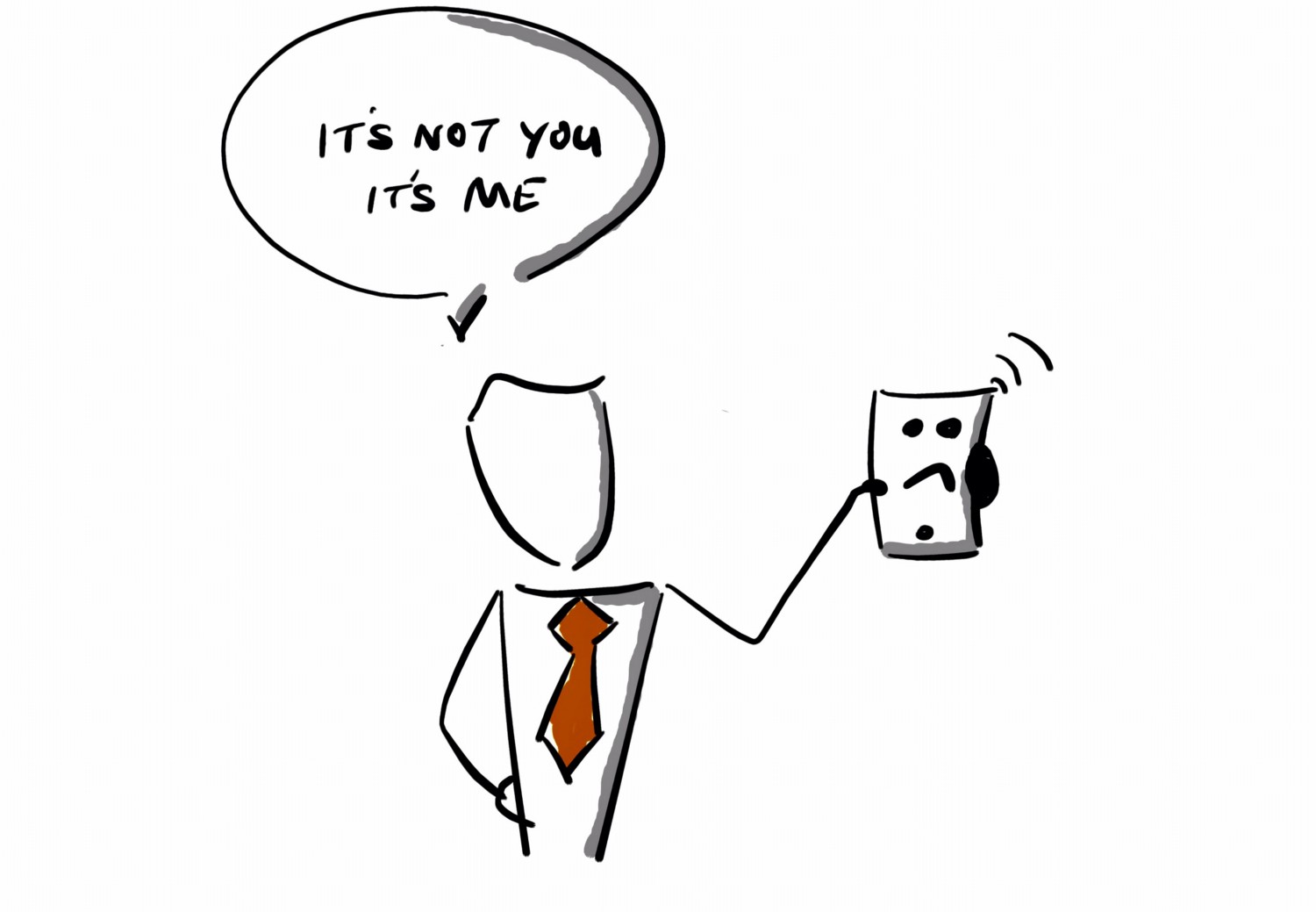Breaking up with your phone, digital divorce, digital diets, digital detox, no email Fridays — where ever you look now there’s advice on getting away from your devices. The evils of digital life and the evils of app developers are found everywhere — online ?.
Like so much in life the reality is too much or too little of anything is bad for you.
Ultimately we as individuals make choices — we can choose to spend 10 hours on Facebook, we can choose to not exercise, we can choose when to look at our phones, we can choose when to focus…
That said as human beings we have the gift of being able to think, to create arguments, to rationalise. So even if we know that something is bad for us we can rationalise why it’s OK — it was a tough day…I just need to unwind…I might miss out on <insert whatever you may miss out on>.
We have apps that can stop us looking at certain apps at certain times or specified periods of time — truth is we can always override these apps.
Whilst creating friction to stop us doing something seen as bad for us is a fair strategy — it sort of misses the point- the point is we should choose how we use our digital tools.
I think technology is great, I can recognise the problems and I’m sure you can too.
You can try this experiment at home with friends or at work in meetings.
When there is a lull in a conversation or a meeting, just pick up your phone and look at the screen (you don’t need to go into any app) and then watch what happens around you; I would guarantee that the majority of people will pick up their phones. It’s become the default response.
Is that bad?
Maybe.
If I make a choice I can make that choice in 2 ways — mindfully or mindlessly.
The mindful choice maybe I need to check if the boss needs anything. The mindless choice may be to check your twitter stream (assuming the social media is not your actual job).
If I make the mindless choice I’m also forgoing other opportunities in that moment — opportunity to build relationship or bridge with colleagues friends. Opportunities to test out ideas or simply connect.
Think about all of those moments that have now past substituted by a search for the never-arriving important email, the Facebook likes, the retweets from some unconnected follower.
The lack of control we have means we miss out. We miss out on moments that could become memories, and yes memories you may share digitally, but from a better place.
Think about how you feel in those moments of scrolling compared to those moments when you share jokes with friends/ co-workers; when you build that bond with your new teammates; when you can finally build bridges with that guy from accounting you thought was just being difficult…
The rewards we can get from meaningful moments far outweigh the short-term hit from reacting to the social pings and dings.
Enforced digital diets are not the answer, in the same way, that diets full stop are not the answer.
The answer lies with us, with our ability to exercise control and make better choices.
We can always blame others, external events for our shortcomings — that won’t change anything.
Making mindful choices enables us to get the best from those moments and make the best use of our digital lives.
It’s not aeither or choice its aand choice.
Digital is not going away it will become more pervasive our jobs are to choose how the technology helps us live better lives.
I struggle with digital-mindlessness, and I curse the minutes or hours that get lost.
One tactic I have adopted is to create the pause — as I think about or actually reach for the device I use this mantra
Given that I won’t get this moment again will this be the best use of my time right now…
At least I will be making a conscious choice.
Interestingly by doing this, I have found that I pay more attention to whatever is going on around me, even if I’m just walking along the road. When I don’t reach for the device during breaks in meetings I find myself getting into better conversations, even if I do interrupts some else’s digital fix.
Don’t forget we control our technology not the other way around.
Originally published at medium.com


